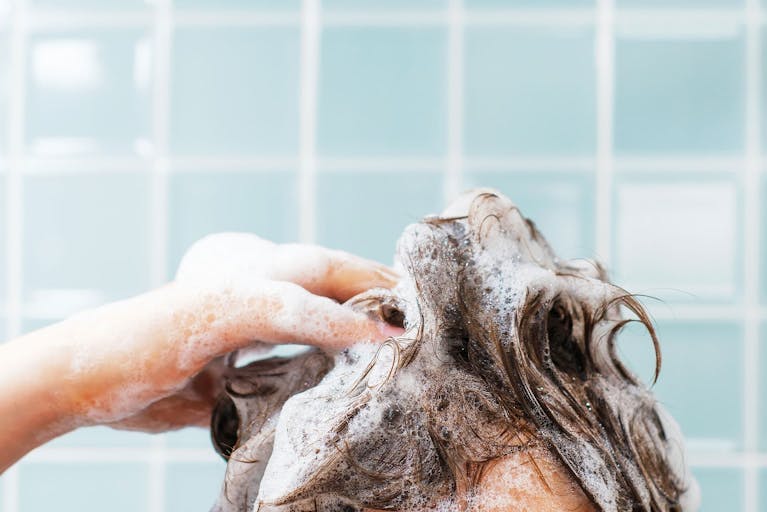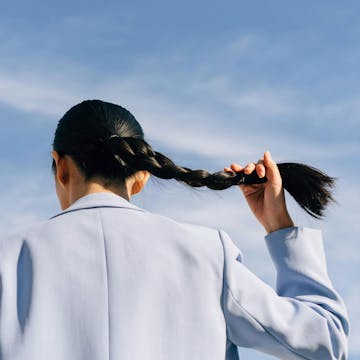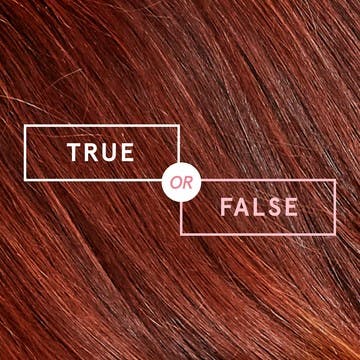5 Signs You're Not Washing Your Hair Enough
Find your dream clean.
We’ve all heard the debate—should you wash your hair every day, every other day, or just once a week? While there’s no one-size-fits-all answer, skipping too many wash days can lead to hair and scalp issues that aren’t doing your strands any favors. If you’ve been pushing the limits on your shampoo schedule, here are five telltale signs it might be time to lather up.
How often should you wash your hair?
Your ideal wash routine depends on your hair type, scalp condition, and lifestyle. Generally, you can use this as a guideline:
- Oily hair may need washing every 1-2 days.
- Normal to dry hair can go 2-4 days between washes.
- Curly or coily hair often benefits from washing once a week or less to maintain moisture.
- If you exercise frequently, you may need to wash more often to remove sweat buildup.
While this isn’t a perfect science, it’s a good place to start. Now, let’s get into the signs that you may not be washing enough.
5 Signs You're Not Washing Your Hair Enough
Your hair feels greasy all the time.
Excess oil is one of the biggest indicators that it’s time for a wash. Your scalp naturally produces sebum to keep hair healthy, but if it’s left too long, it can weigh hair down and make it look limp and lifeless. If dry shampoo is doing all the heavy lifting for greasy hair, it might be time to reach for the real thing.
You have more dandruff than usual.
Dandruff isn’t just about dry skin—it can also be caused by a buildup of oil and dead skin cells. According to the American Academy of Dermatology, infrequent washing can contribute to flaky scalp conditions. If you’re noticing persistent flakes, washing more often with a scalp-friendly shampoo might help.
Your scalp feels itchy.
A little itch here and there is normal, but if your scalp constantly feels irritated, product buildup, excess oil, and dead skin could be the culprits. Shampooing regularly helps clear away these irritants, leaving your scalp refreshed and balanced. You may also want to invest in a clarifying shampoo to give your scalp a deep clean whenever you need it.
Your hair looks dull.
Healthy hair has a natural shine, thanks to light reflecting off clean strands. But when oil, product buildup, and environmental debris accumulate, hair can start to look flat and lackluster. A good wash helps restore that glossy, salon-fresh finish.
You're shedding more than usual.
It’s normal to lose about 50-100 hairs a day, but if you’re noticing more shedding than usual, it could be a sign of scalp congestion. When hair follicles are clogged with oil and styling products, it can lead to increased hair fall. Keeping your scalp clean creates the best environment for healthy hair growth.
Tips for Shampooing the Right Way
Use the right shampoo for your hair type.
Your wash frequency, hair type, and lifestyle can all help you choose the right shampoo for you. For example, if you have fine, straight hair, you may want to use a gentle shampoo that is suitable for everyday use. If you have dry, frizzy hair, you may need a heavier, more moisturizing shampoo to get the cleanse you need.
If you would rather take the guesswork out of finding your perfect match, eSalon's Custom Shampoo is designed to cater to your hair’s unique needs, ensuring you’re not stripping hair of its natural oils or under-cleansing.
Massage well.
A thorough scalp massage while washing helps lift dirt, oil, and buildup while stimulating circulation for healthy hair growth. Whether you use your fingertips or a scalp massager, it's important to exfoliate the scalp while shampooing thoroughly.
Focus on the roots.
Your scalp is where buildup happens, so concentrate your shampoo there rather than the ends, which can dry out more easily. On the flip side, when you're conditioning your hair, make sure to focus on the mid-lengths and ends to rehydrate those freshly cleansed strands.
Skipping wash day here and there is totally fine, but too much time between shampoos can lead to issues like excess oil, flakes, and dull hair. The key is finding the right balance for your hair type. When in doubt, listen to your scalp. If it feels off, a good wash might be just what it needs.





